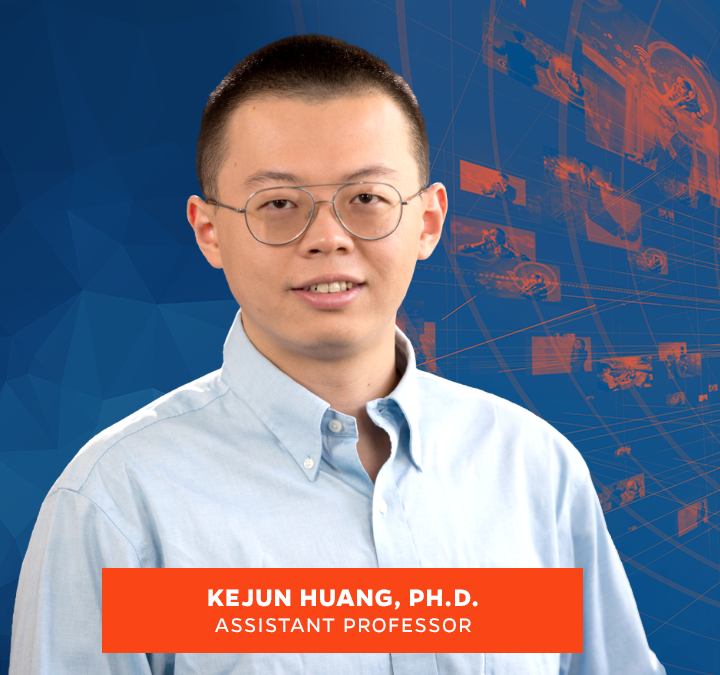Kejun Huang, Ph.D., an assistant professor in the Department of Computer & Information Science & Engineering (CISE), has received a CAREER award from the National Science Foundation (NSF). His project, “Principled Unsupervised Learning via Minimum Volume Polytopic Embedding,” will focus on machine learning that addresses the challenges of unsupervised learning, which teaches the machine, or an AI system, to understand patterns in data.
Dr. Huang said the main difference between supervised learning and unsupervised learning is the kind of data provided for the algorithm.
“If we want to develop a program to recognize whether there is a cat in an image, supervised learning requires that the algorithm is provided with a large set of images, and each of them is provided with the correct label of ‘cat’ or ‘no cat.’ This requirement may or may not be realistic in practice,” Dr. Huang said. “For unsupervised learning, the algorithm automatically finds patterns in the data without asking for specific examples of what the pattern is during the data preparation stage.”
There are two major challenges in unsupervised learning: 1) how do we know if the learned representation is correct, meaning it is mathematically the unique solution? 2) all the existing models are known to be computationally hard to solve, as no known algorithm is guaranteed to exactly solve the problem within polynomial-time, also known as “NP-hard.”
“On top of those challenges, there lacks a unified framework to understand all the various unsupervised learning models,” Dr. Huang said. “The overarching goal of this project is to resolve all three of these issues by developing a principled framework of minimum volume polytopic embedding for unsupervised learning.”
Dr. Huang’s research focuses on machine learning. His other research interests include algorithms, signal processing, optimization, and statistics. He earned his B.ENG. degree from Nanjing University of Information Science and Technology in 2010 and his Ph.D. in electrical engineering from the University of Minnesota in 2016. From 2016 to 2018, he was a Postdoctoral Associate in the Department of Electrical and Computer Engineering at the University of Minnesota.
“This award means not only an acknowledgment of my past achievements but also provides sufficient resources for me to continue the research direction that I am most passionate about,” Dr. Huang said. “I am very optimistic about my future contributions to this subject with the help of this CAREER Award.”
CAREER awards are NSF’s most prestigious award for junior faculty and are designed to help provide a foundation for a lifetime of scientific leadership. The awards are given to an outstanding scientist who exemplifies the role of teacher-scholars through research, education, and the integration of education and research.
Allison Logan
Communications Manager
Herbert Wertheim College of Engineering
Originally published on Computer & Information Science and Engineering News.
